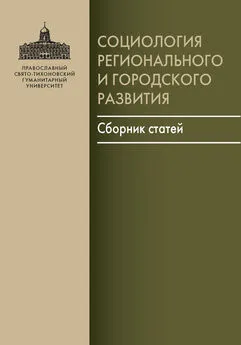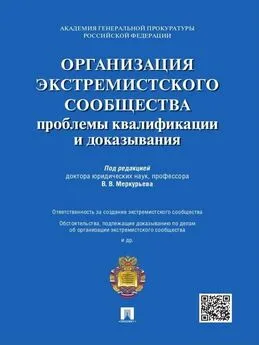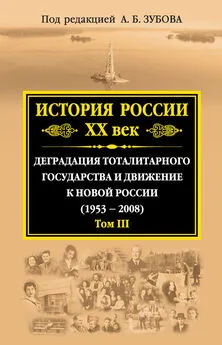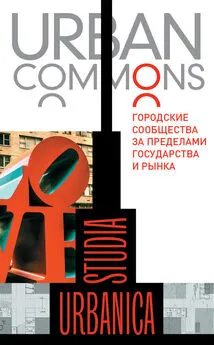Коллектив авторов - Urban commons. Городские сообщества за пределами государства и рынка [litres]
- Название:Urban commons. Городские сообщества за пределами государства и рынка [litres]
- Автор:
- Жанр:
- Издательство:Литагент НЛО
- Год:2020
- Город:Москва
- ISBN:9785444813706
- Рейтинг:
- Избранное:Добавить в избранное
-
Отзывы:
-
Ваша оценка:
Коллектив авторов - Urban commons. Городские сообщества за пределами государства и рынка [litres] краткое содержание
Urban Commons – Moving Beyond State and Market Ed. by Dellenbaugh, Mary / Kip, Markus / Bieniok, Majken / Müller, Agnes / Schwegmann, Martin
Urban commons. Городские сообщества за пределами государства и рынка [litres] - читать онлайн бесплатно ознакомительный отрывок
Интервал:
Закладка:
233
Интервью с продавцом чая из Карнатаки, 25 октября 2012.
234
«Сообщество» в данном случае указывает на религиозную или кастовую общность.
235
Интервью с торговцем соком из сахарного тростника, 28 октября 2012.
236
Интервью с уличным торговцем, продающим сумки для шопинга, 7 ноября 2012.
237
Интервью с владельцем транспортного магазина № 1, 8 ноября 2012.
238
Интервью с уличным торговцем кукурузой, 15 ноября 2012.
239
Интервью с водителем трицикла, 25 ноября 2012.
240
Greater Hyderabad Municipal Corporation (GHMC), «Policy on Simplification of Regulation of Street Vending/Hawking in MCH area», Hyderabad: GHMC, 2006. http://www.ghmc.gov.in/approvedplans/hawkers_notification.pdf (accessed Aug 22, 2013).
241
Свидетельства о полицейских патрулях разнятся от информанта к информанту; тем не менее на момент полевой работы не было публичных отчетов о недавних выселениях или рейдах.
242
Jonathan Shapiro Anjaria, «Street Hawkers and Public Space in Mumbai», Economic and Political Weekly 41, № 21 (2006): 2140–2144; Ritajyoti Bandyopadhyay, «Hawkers’ Movement in Kolkata, 1975–2007», Economic and Political Weekly 44, № 17 (2009): 119; Sharit Bhowmik, «Legal Protection for Street Vendors», Economic & Political Weekly 45, № 51 (2010): 12; Rajesh Gaur, Protesting Liberalization in India: An Examination of Discursive Strategies Used by Street-Vendors, Squatters, and Small-Retailers to Create and Universalize Resistance Narratives (Lexington, KY: University of Kentucky Doctoral Dissertations, 2009), 98.
243
Kate Meagher, «Crisis, Informalization and the Urban Informal Sector in Sub-Saharan Africa», Development and Change 26, № 2 (1995): 277.
244
Kirsten Hackenbroch, «Urban Informality and Negotiated Space: Negotiations of Access to Public Space in Dhaka, Bangladesh», disP – The Planning Review 47, № 187 (2011): 60.
245
Это выражение, использованное несколькими уличными торговцами, указывает на практику взяточничества.
246
Интервью с владельцем двух стендов, торгующим лепешками доса на дороге Джавахарлала Неру, 8 ноября 2012.
247
Интервью с управляющим директором Комитета по вопросам наследия и консервации при муниципальной корпорации Большого Хайдарабада, 25 февраля 2013.
248
Achyut Yagnik, Communal Riots in Hyderabad – What the People Say (Ahmedabad: SETU Centre for Social Knowledge and Action, 1984), 13; Ursula Rao, «Contested Spaces. Temple Building and the Re-creation of Religious Boundaries in Contemporary Urban India», in On the Margins of Religion, Frances Pine and Joao Pina-Cabral, eds. (Oxford: Berghahn, 2008), 82–83.
249
Rao, «Contested Spaces. Temple Building and the Recreation of Religious Boundaries in Contemporary Urban India», 83.
250
Тем не менее есть указания на то, что пространственные практики религиозных групп служат одной из причин для повторяющихся конфликтов между ними; подробнее см.: Ratna Naidu, Old Cities, New Predicaments: A Study of Hyderabad (New Delhi: Sage Publications, 1990), 205–206 and Sudhir Kakar, The Colors of Violence: Cultural Identities, Religion, and Conflict (Chicago: University of Chicago Press, 1996), 13–14.
251
Ostrom, Governing the Commons, 90–91; Остром Э . Управляя общим… С. 178–180.
252
Sudipta Kaviraj, «Filth and the Public Sphere: Concepts and Practices about Space in Calcutta», Public Culture 10, № 1 (1997): 86.
253
William J. Glover, «Construing Urban Space as „Public“ in Colonial India: Some Notes from the Punjab», Journal of Punjab Studies 14, № 2 (2007): 212.
254
Sara Dickey, «Permeable Homes: Domestic Service, Household Space, and the Vulnerability of Class Boundaries in Urban India», American Ethnologist 27, № 2 (2000): 470.
255
Partha Chatterjee, The Nation and its Fragments: Colonial and Postcolonial Histories (Princeton: Princeton University Press, 1993), 121.
256
Kaviraj, «Filth and the Public Sphere», 94.
257
Greater Hyderabad Municipal Corporation (GHMC), «Policy on Simplification of Regulation of Street Vending/Hawking in MCH area», Hyderabad: GHMC, 2006; http://www.ghmc.gov.in/approvedplans/hawkers_notification.pdf (accessed Aug 22, 2013).
258
Hyderabad Metropolitan Development Authority (HMDA), «Metropolitan Development Plan-2031 for Hyderabad Metropolitan Region», Hyderabad: HMDA, 2013; http://220.227.252.236/ehmr/PDFDownload/45X42_1,00,000%20scale%20PLU.pdf (accessed Aug 22, 2013).
259
Интервью с уличным торговцем сумками для шопинга, 7 ноября 2012; Интервью с владельцем транспортного магазина № 2, 19 ноября 2012.
260
Kaviraj, «Filth and the Public Sphere», 84.
261
Elisa T. Bertuzzo, Fragmented Dhaka: Analysing Everyday Life with Henri Lefebvre’s Theory of Production of Space (Stuttgart: Franz Steiner Verlag, 2009), 31.
262
Harvey, Rebel Cities, 75.
263
Интервью с владельцем киоска со жвачками паан, 2 ноября 2012.
264
Manderscheid, «Automobilität als raumkonstituierendes Dispositiv der Moderne», 159.
265
Ostrom, Governing the Commons, 101; Остром Э . Управляя общим… С. 181.
266
Partha Chatterjee, The Politics of the Governed: Reflections on Popular Politics in Most of the World (New York: Columbia University Press, 2004), 136–137.
267
Тому может быть множество причин; одной из них можно считать фрагментированные рациональности городских институций. Подробнее см.: Seth Schindler, «A New Delhi Every Day: Multiplicities of Governance Regimes in a Transforming Metropolis», Urban Geography 35, № 3 (2014): 404.
268
Arjun Appadurai, «Deep Democracy: Urban Governmentality and the Horizon of Politics», Environment and Urbanization 13, № 2 (2001): 42–43.
269
Marijk Huysman, «Waste Picking as a Survival Strategy for Women in Indian Cities», Environment and Urbanization 6, № 2 (1994): 155.
270
Appadurai, «Deep Democracy: Urban Governmentality and the Horizon of Politics», 42.
271
Ostrom, Governing the Commons, 101; Остром Э . Управляя общим… С. 181.
272
Определенно, городские службы использовали эти инструменты, чтобы передавать землю строительным компаниям и девелоперам и извлекать из этого ресурса выгоду; подробнее см.: Swapna Banerjee-Guha, «Revisiting Accumulation by Dispossession: Neoliberalising Mumbai», in Accumulation by Dispossession. Transformative Cities in the New Global Order, Swapna Banerjee-Guha, ed. (Los Angeles: Sage, 2010), 214–216; and Solomon Benjamin, «Occupancy Urbanism: Radicalizing Politics and Economy beyond Policy and Programs», International Journal of Urban and Regional Research 32, № 3 (2008): 721.
273
Bertuzzo, Fragmented Dhaka, 31.
274
Ibid.
275
Мы бы хотели поблагодарить Группу городских исследований за содержательные комментарии и критические замечания, направленные в адрес черновых вариантов этой статьи.
276
Эта часть основана на магистерской диссертации Диди Хан, см.: Didi K. Han, «Communicating Communes; A Case Study of Urban Communing Movement in South Korea (working title)», (Simon Fraser University, forthcoming).
277
Столичный район Южной Кореи образуют города Сеул, Инчхон и Конджу.
278
Donggi Kwak, «The Key Money, Is It Really the Best?» Oh My News, September 21, 2010, http://www.ohmynews.com/nws_web/view/at_pg.aspx?CNTN_CD=A0001447915 (accessed May 3, 2014).
279
В повседневной речи сокращение IMF обычно отсылает к травматичному переживанию конца 1990‐х, а не к названию самой финансовой компании.
280
Carlo Vercellone, «The Crisis of the Law of Value and the Becoming-Rent of Profit», Crisis in the Global Economy: Financial Markets, Social Struggles, and New Political Scenarios, Andrea Fumagalli and Sandro Mezzadra, eds. (Los Angeles: Semiotext(e) 2010), 85–118; Antonio Negri and Michael Hardt, Commonwealth (Cambridge, MA: Belknap Press, 2011), 153–158, 249–260; David Harvey, Rebel Cities: From the Right to the City to the Urban Revolution (London; New York: Verso, 2012), 89–113.
281
Nakgu Sohn, The Real Estate Class Society (Seoul: Humanitas, 2008), 25.
282
Jjokbang (ночлежки) и gosiwon – типичные для современной Южной Кореи городские обитаемые пространства фрагментации и невидимости. Любой желающий может снять jjokbang (площадью около 3 кв. м) без всякого депозита. Часто в комнатах нет даже ванной – жителям приходится пользоваться общей ванной на этаже. Изначально gosiwon был общежитием, в котором размещались студенты, готовящиеся к выпускному экзамену или вступительным для работы в центральном госаппарате.
Читать дальшеИнтервал:
Закладка:
![Обложка книги Коллектив авторов - Urban commons. Городские сообщества за пределами государства и рынка [litres]](/books/1058534/kollektiv-avtorov-urban-commons-gorodskie-soobches.webp)




![Коллектив авторов - Гражданское право. Части вторая и третья. Краткий курс [litres]](/books/1073990/kollektiv-avtorov-grazhdanskoe-pravo-chasti-vtoraya.webp)
![Коллектив авторов - Мозг и сознание [Разгадка величайшей тайны человеческого мозга] [litres]](/books/1075092/kollektiv-avtorov-mozg-i-soznanie-razgadka-velicha.webp)
![Коллектив авторов - Рыба и морепродукты. Закуски, супы, основные блюда и соусы [litres с оптимизированными иллюстрациями]](/books/1078496/kollektiv-avtorov-ryba-i-moreprodukty-zakuski-su.webp)


